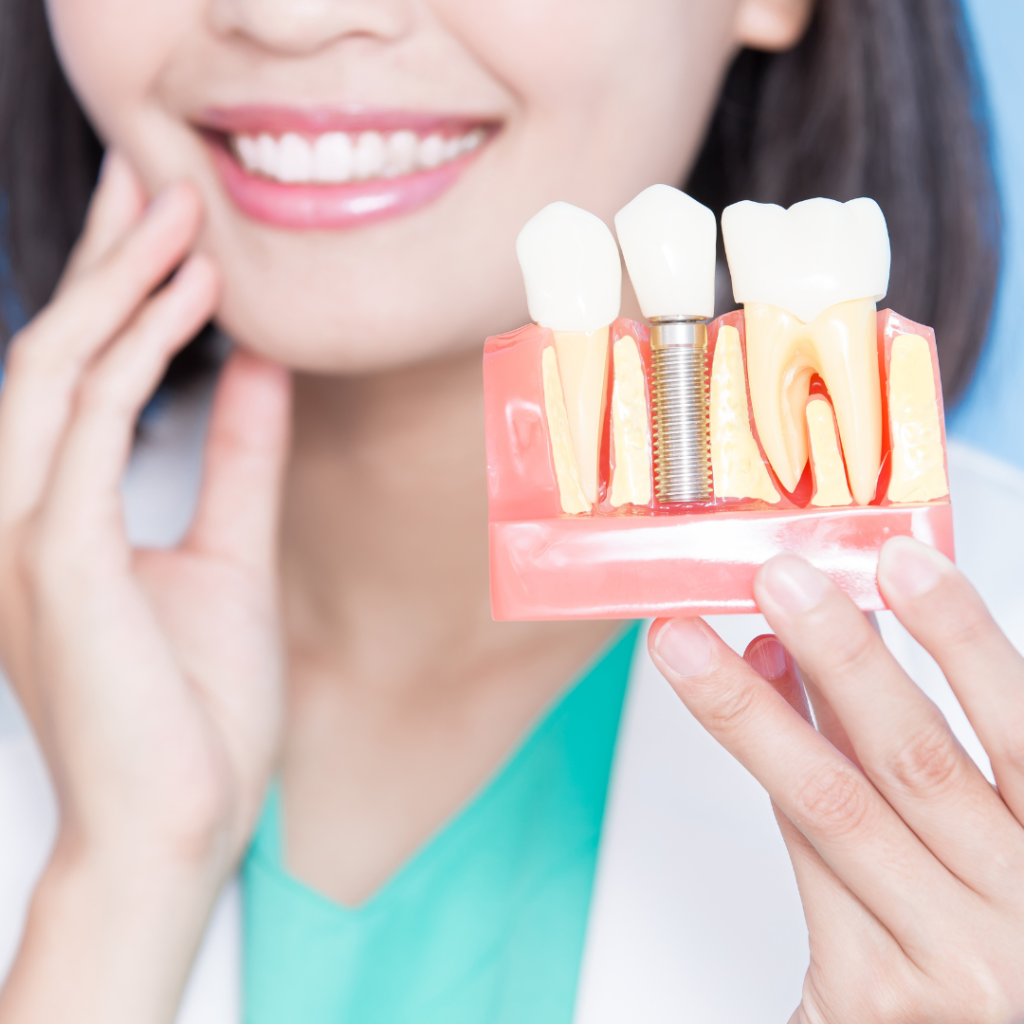Toothache after nerve removal – consultation with an endodontist at Astra Dent
Pain after nerve removal is a common but disturbing sensation. The patient expects relief, but instead unpleasant symptoms appear: discomfort or pain when chewing. This raises a logical question: have the root canals been cleaned and sealed properly, are there any residual infections and microcracks in the filling?
To understand, you need to understand what exactly happened to the tooth. Nerve removal is part of endodontic treatment, during which the doctor cleans the root canals of the affected tissue, treats them with an antiseptic and hermetically seals them. Even with the perfect technique, the tissues around the root apex may remain irritated. This is a normal postoperative reaction that disappears over time.
At Astra Dent, the patient is accompanied not only during the procedure, but also after it. The endodontist assesses the depth of the filling, checks the density of the canal closure, excludes the presence of microcracks, instrument residues or material protruding beyond the root. The consultation helps to find out the cause of the pain, distinguish the norm from complications and, if necessary, adjust the treatment.
Why do patients choose Astra Dent Warsaw for tooth treatment after nerve removal?
After endodontic intervention, it is important for the patient to be sure that the treatment was performed qualitatively and without complications. In such situations, the doctor's experience, diagnostic accuracy, level of control and availability of post-procedural support play an important role.
Advantages of tooth treatment after nerve removal at Astra Dent Warsaw:
- Endodontists with extensive experience. The dental center employs specialists who specialize in microendodontics and regularly improve their qualifications. Astra Dent accepts doctors who perform dozens of root canal filling procedures every week.
- Treatment under a microscope. Optics allow us to see the structure of the canal with an accuracy of up to tenths of a millimeter. Correct visualization of the canals is especially necessary in cases where there are curvatures, branches, atypical anatomy. Without a microscope, such details remain out of sight, which increases the risk of incomplete cleaning or skipping the canal.
- Accurate diagnostics. Astra Dent offers high-resolution computed tomography, which detects residual inflammation, microcracks, chronic foci in the bone and allows us to assess the quality of the filling immediately after the procedure.
- Painless treatment without unnecessary complications. Modern anesthesia, isolation of the tooth with a rubber dam, ozone disinfection, careful adherence to protocols reduce risks to a minimum.
- Ukrainian-speaking team. Doctors, assistants and administrators at Astra Dent communicate in Ukrainian. Communication without a language barrier allows the patient to understand the diagnosis, ask questions and clearly follow all recommendations.
- In the center of Warsaw – convenient to get to. The medical center is located near the metro and public transport. Visits are scheduled by appointment, without queues and expectations.
- All stages of treatment are monitored – from the initial diagnosis to the final image. The patient receives an explanation of what exactly was done and how to evaluate the effectiveness. This is the principle position of Astra Dent: transparent, accurate and to the point.
Why can a tooth hurt after nerve removal?
Patients are often surprised that pain persists after complete nerve removal. But it is worth remembering: the nerve is not the only source of pain in the tooth. Any intervention in the root system creates a mechanical and biological load on the surrounding tissues, which do not react to it immediately.
Causes of pain after nerve extraction:
- Natural postoperative reaction (1-3 days). After cleaning and filling the canals, a slight inflammation may remain in the root apex area. It occurs due to mechanical contact of instruments, antiseptics and filling material with adjacent tissues.
- Manipulations in the canals, pressure on the tissues, immune system reaction. During mechanical and drug treatment of the canals, some of the materials or microfragments may go beyond the anatomical apex. The body reacts to this as an intervention: sensitivity increases, protective cells are activated.
- Minor pain when pressing or chewing is possible. In the first days after the procedure, sensitivity is possible when chewing, especially when in contact with the antagonist tooth. Such a reaction is explained by microinflammation around the root and does not indicate complications.
In most cases, the symptoms go away on their own within 2-4 days. If the pain does not disappear or intensifies, you should contact an endodontist to check the condition of the canal and surrounding structures. Astra Dent has everything you need for this – from visual inspection to digital tomography.
When is pain normal and when is it time to worry?
The time, nature of the pain and accompanying symptoms help to distinguish physiological sensitivity from the pathological process:
- The pain lasts for 1-3 days. A three-day period is considered normal after endodontic intervention, when the tissues adapt to the changes. The sensitivity gradually weakens and disappears without medication.
- Unpleasant sensations appear when pressed. This is a sign of the reaction of the surrounding tissues to mechanical stress after filling. At rest, the tooth usually does not bother.
- The pain gradually decreases. If it becomes easier every day, this indicates a normal course of the postoperative period.
- The pain intensifies or appears later. A delayed reaction or increase in symptoms may signal secondary infection, perforation, excess filling material or an additional canal not detected.
- Swelling, pulsation, temperature appear. Signs indicate active inflammation or suppuration, which require urgent diagnosis and intervention.
Even a slight deterioration after a period of stability should not be ignored. Astra Dent doctors will promptly assess the situation using X-rays or CT scans, check the quality of the filling, rule out fractures or residual infection, and predict the development of complications before serious symptoms appear.
Complications after root canal treatment
Endodontic treatment does not exclude the risk of complications even when the protocol is followed. They do not occur immediately, symptoms appear after days or weeks. To detect the problem in time, you need to understand which situations require re-diagnosis:
- Incomplete cleaning of the canals. The canal in the complex anatomy of the tooth may have bends, branches, or be blocked by calcified areas. If the infected tissue could not be completely removed, the inflammation persists deep inside. Without a microscope, these areas often go unnoticed.
- Infection in the canal. Bacteria can get deep into the tooth if the filling has lost its tightness or the microchannel remains open. Secondary infection is often accompanied by pain when chewing, aching sensations at rest and periodic exacerbations.
- Root perforation. During root canal treatment, there is a risk of a root wall rupture. The complication leads to inflammation of the surrounding tissues and requires microsurgical intervention.
- Allergy to filling material. Modern materials rarely cause reactions, but in rare cases, local irritation or an immune response is possible. The patient complains of pain without a cause, a feeling of pressure, burning or itching in the area of the treated tooth.
If the pain does not go away or its nature changes, do not delay a visit to the doctor. Astra Dent has all the necessary tools to detect hidden complications – from microscopic examination to analysis of the density of the filling on CT. The earlier the problem is detected, the easier it is to eliminate it without losing the tooth.
What to do if a tooth hurts after nerve removal?
Discomfort after nerve removal does not always mean complications, but you should not ignore the symptom. Especially if the intensity increases, pulsation appears or the pain disturbs sleep. It is important not to waste time and act correctly:
- Do not wait if the pain is severe. Acute pain that increases over time is not a normal reaction after root canal filling. In such cases, you should contact an endodontist as soon as possible.
- Do not heat the tooth or take antibiotics without a prescription. Thermal procedures increase inflammation, and antibiotics without indications lubricate the symptoms without eliminating the source of the problem. Self-medication complicates further diagnosis.
- Make an appointment for a check-up. The doctor will conduct a visual assessment, perform percussion, a targeted X-ray or refer you for a CT scan to analyze the periapical tissues and the condition of the filling.
- Astra Dent offers quick appointments, on-site X-ray, repeated treatment if necessary. The patient receives diagnostics without queues, digitally processed images in a few minutes and a consultation with an endodontist who specializes in complex cases.
- It is dangerous to delay. If latent inflammation occurs in the treated area, timely intervention will help save the tooth and avoid greater losses. Astra Dent has all the conditions to quickly determine the source of pain.
If discomfort or doubts appear after treatment, do not postpone a visit to the dentist. Timely examination prevents re-inflammation, tooth loss and associated complications.
How to make an appointment at Astra Dent Warsaw?
Sensitivity after endodontic treatment should not be ignored. A visit to an endodontist at Astra Dent in Warsaw can be arranged quickly and without formalities. The consultation includes an examination, on-site X-ray diagnostics and, if necessary, additional examination using a microscope or CT scan.
You can make an appointment in a way that is convenient for you:
- by phone: +48 533 599 552;
- email: info@astradent.pl;
- via the online form on the website – the application takes less than a minute.
Astra Dent is open every day, on weekdays from 9:00 to 20:00, on weekends – until 18:00. Visits are by appointment, without waiting in lines. If you experience pain or doubts after root canal treatment, do not delay. Quick diagnostics will help to stop complications in time and save the tooth.

Last update:
08 October 2025, 15:57






















